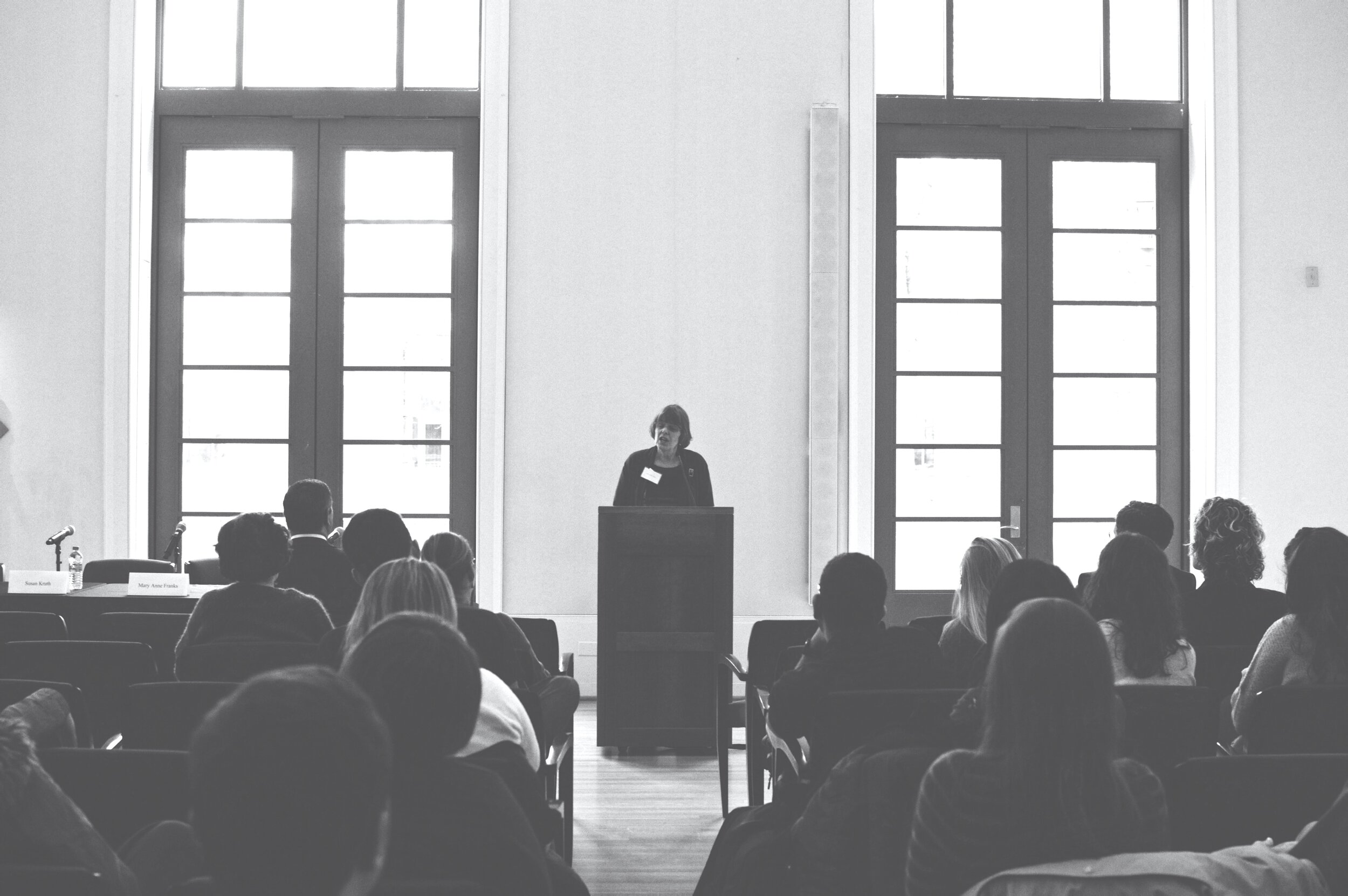Katharine Janes ‘21
SBA President
UVA Law,
I am writing to you from my home state of Michigan, feeling comforted by familiar sights but saddened and unsettled by the new, online community we inhabit. It was strange to leave Charlottesville without knowing exactly when I will be back—a feeling I know is familiar for many. I miss you all, but I hope you are safe and well.
Our move to remote learning is unexpected and unprecedented, and understandably, it is leaving many of us feeling anxious and uncertain—myself included. The constant deluge of negative news about the state of affairs of our country and world does not resolve these feelings, as we come to understand our new law school life. Therefore, in my welcome address, I’d like to set aside the obvious difficulties of the current moment and simply let you know how lucky I feel to share a (now-online) school with you all. Additionally, I’d like to let you know what the Student Bar Association (SBA) has done—and what it will continue to do—during this uncertain time.
Over the past week, we have been working diligently to connect students with information and needed resources. I have met or spoken with Jasmine Lee ’20 and the SBA Executive team every day, and we have a full SBA meeting scheduled for tomorrow. Our conversations thus far—as articulated in the school-wide email Jasmine and I sent on March 14th—have included connecting students with mutual aid opportunities, student health resources, and financial assistance; initiating conversations on grading policies and student organization functioning; and getting clarifications on where students should live, what our classroom experiences will look like, how course materials can be accessed or recovered, and how to best communicate with professors going forward. These conversations are ongoing, and we will continue to send updates as we receive them.
The uniqueness of the UVA Law community is evident to me now more than ever. From day one, students reached out to group messages and listservs offering to scan their readings for fellow students who left books behind, inquired about whether UVA staff will continue to be paid (they will!), and advocated for policy changes that would improve student health and wellbeing (both mental and physical). Our peers have volunteered their time to distribute goods to those facing financial hardship and their labor to bring goods to those who cannot go themselves. A constant hum of “let me know what I can do to help” has reminded me of how compassionate, empathetic, and selfless those in our law school community are. I am indescribably thankful to be your classmate.
SBA exists to represent the needs of our student body. In my last year as Secretary, I was impressed by the attentiveness and outpouring of effort by our Committee members, Senators, and Executive team to make our school as welcoming and inclusive as possible. SBA 2020: Though it is often a thankless job, you have supported—and continue to care deeply about—our community and its people. Thank you for serving our student body for the past year.
I think Jasmine, though, deserves our particular thanks. Behind the scenes, she put in countless hours to make sure that events went off without a hitch, that individuals had a point person to whom they could direct questions, and that student wellbeing was always at the forefront of the Administration’s efforts. Her frequent communications and constant accessibility revealed the true depth of her desire to use her position to benefit our community. Thank you, Jasmine, for demonstrating, through words and action, what selfless leadership looks like. I’m grateful to have learned from your example.
To SBA 2021: I am beyond excited to work with you over the next year. You are a team of diligent, brilliant, and forward-thinking individuals who will push our school to be better than it was when we took office. I look forward to hearing your ideas and serving with you during our term.
During this upcoming period of remote learning, SBA will continue to advocate for UVA Law students. Next year’s Executive team in particular—Savanna Williams ’21, Chance Maginness ’22, Katherine O’Neal ’22, and I—will do all we can to act as a resource for students. I have received a significant number of emails and texts over the past few days with comments, questions, and concerns: Please keep them coming. We are in daily contact with the Administration and will continue to serve as a liaison for student voices for the duration of our time apart. Though the state of flux we are in is certainly uncomfortable and challenging, I am confident in our ability to persevere together. Thank you for selecting me to serve as your President: I take the role seriously, cannot wait to problem-solve together, and look forward to being on Grounds with you all as soon as possible.
---
kmj4vg@virginia.edu




















